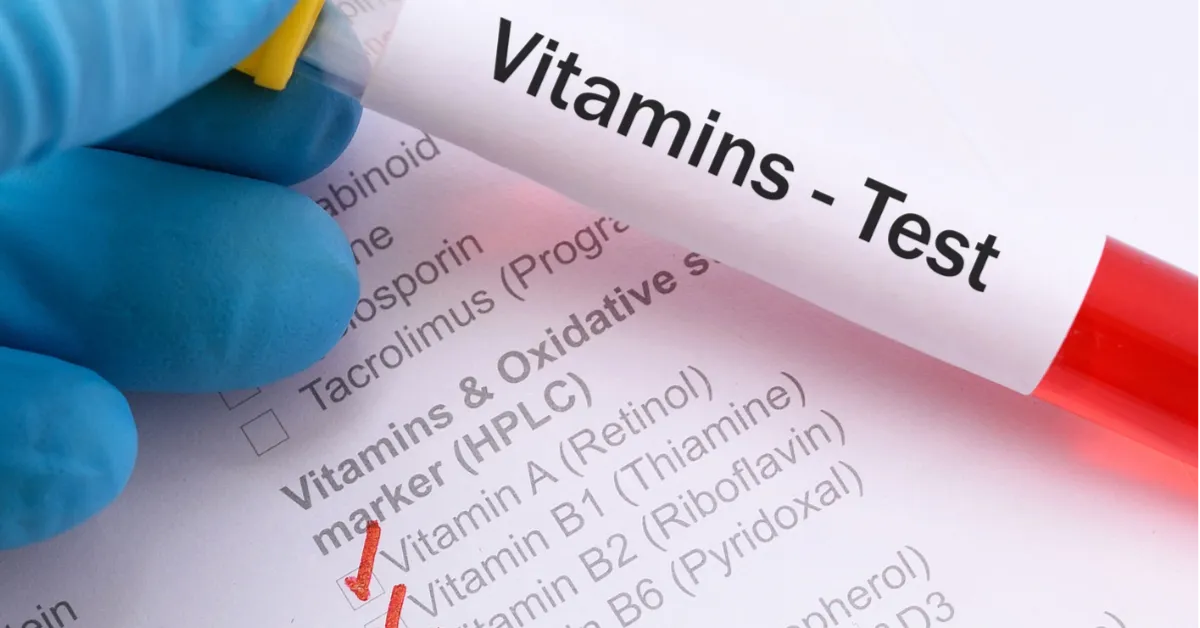USP Vitamin B-Complex Profiling in Pharmaceuticals and Food
The United States Pharmacopeia (USP) [1] method, also known as the USP Vitamin B-Complex Profiling test, is a critical analytical tool used to assess the quality, purity, and bioavailability of vitamins in pharmaceuticals and food products. This service ensures that products meet stringent regulatory standards set forth by international health authorities, including the US Food and Drug Administration (FDA) and European Medicines Agency (EMA).
This profiling method evaluates a broad spectrum of water-soluble B-vitamins such as thiamine (Vitamin B1), riboflavin (Vitamin B2), niacinamide (Vitamin B3), pyridoxamine (Vitamin B6), pantothenic acid (Vitamin B5), biotin, and folates. Each vitamin plays a crucial role in metabolism, energy production, and overall health. The USP method is designed to provide detailed quantitative information on the presence, purity, and activity of these vitamins.
The testing process involves several key steps: sample preparation, extraction, derivatization (where necessary), and chromatographic analysis using high-performance liquid chromatography (HPLC) or gas chromatography-mass spectrometry (GC-MS). The choice between HPLC and GC-MS depends on the specific vitamin being analyzed. For example, HPLC is preferred for polar compounds like vitamins, while GC-MS offers greater sensitivity and specificity for volatile components.
Once the samples are prepared and analyzed, the results are compared against USP acceptance criteria to ensure compliance with established limits and specifications. This includes checking for the presence of any impurities or degradation products that might affect the efficacy or safety of the product. The service also provides a comprehensive report detailing the levels of each vitamin detected in the sample, along with any deviations from the expected profile.
Compliance with USP is crucial for pharmaceutical and food manufacturers as it helps ensure the quality and consistency of their products. Non-compliance can lead to product recalls, fines, and damage to brand reputation. By offering this service, we help our clients stay ahead of regulatory requirements and maintain a competitive edge in the market.
The expertise required for USP testing is extensive, involving not only advanced laboratory equipment but also experienced analytical chemists who are familiar with both chromatographic techniques and pharmaceutical regulations. Our team uses state-of-the-art instruments such as Agilent 1260 Infinity LC or Thermo Fisher Scientific GC-MS to ensure accurate results.
In summary, USP Vitamin B-Complex Profiling is essential for ensuring the quality of vitamins in pharmaceuticals and foods. It provides detailed insights into the composition and purity of these important nutrients, helping manufacturers meet regulatory standards and deliver safe, effective products to consumers.
Scope and Methodology
The scope of USP testing encompasses a wide range of water-soluble B-vitamins. The method is designed to evaluate the presence, purity, and activity of these vitamins in pharmaceuticals and food products. Key components of this service include sample preparation, extraction, derivatization (if necessary), and chromatographic analysis using either HPLC or GC-MS.
- Sample Preparation: This involves dissolving the sample in a suitable solvent to ensure complete dissolution of all vitamins present.
- Extraction: Depending on the vitamin, different extraction techniques may be employed. For instance, solid-phase extraction (SPE) is used for non-volatile compounds like thiamine and riboflavin.
- Derivatization: Some vitamins require derivatization to enhance their detection by chromatographic methods. This step is particularly important for volatile compounds like pyridoxamine or biotin.
- Chromatographic Analysis: HPLC and GC-MS are the primary analytical techniques used in this service. HPLC is preferred for polar compounds, while GC-MS offers superior sensitivity and specificity for non-polar vitamins.
The results from these analyses are then compared against USP acceptance criteria to ensure compliance with established limits and specifications. This includes checking for the presence of any impurities or degradation products that might affect the efficacy or safety of the product.
To summarize, USP testing covers a comprehensive set of steps aimed at providing detailed quantitative information on the vitamins present in pharmaceuticals and food products. The method ensures high accuracy and reliability through rigorous sample preparation, extraction, derivatization (where necessary), and chromatographic analysis.
Customer Impact and Satisfaction
Compliance with USP is essential for pharmaceutical and food manufacturers as it helps ensure the quality and consistency of their products. Our clients benefit from this service in several ways:
- Avoidance of Product Recalls: By ensuring that all vitamins meet strict regulatory standards, our clients can avoid costly product recalls.
- Enhanced Reputation: Meeting USP requirements enhances the reputation and trustworthiness of a brand in the eyes of consumers.
- Informed Decision-Making: Detailed reports provided by this service allow our clients to make informed decisions about ingredient sourcing and formulation.
- Maintaining Compliance: Regular testing ensures ongoing compliance with regulatory standards, reducing the risk of non-compliance issues.
In conclusion, USP Vitamin B-Complex Profiling is a vital service for pharmaceutical and food manufacturers. It helps ensure product quality, meets regulatory requirements, and supports customer satisfaction by delivering safe, effective, and high-quality products.
Environmental and Sustainability Contributions
The environmental benefits of USP testing are primarily indirect but significant. By ensuring that manufacturers adhere to strict regulatory standards, this service helps reduce waste and improve overall environmental performance:
- Avoiding Waste: Ensuring product quality through rigorous testing can prevent the production of substandard products, thus reducing waste.
- Sustainable Sourcing: Detailed reports provided by USP testing help manufacturers make informed decisions about ingredient sourcing and formulation, promoting sustainable practices.
- Regulatory Compliance: By maintaining high-quality products that meet regulatory standards, manufacturers can avoid costly penalties and contribute positively to the environment.
In summary, while USP testing primarily focuses on product quality, it also supports sustainability by ensuring compliance with international health authorities. This contributes directly to reducing waste and promoting environmentally responsible practices.





